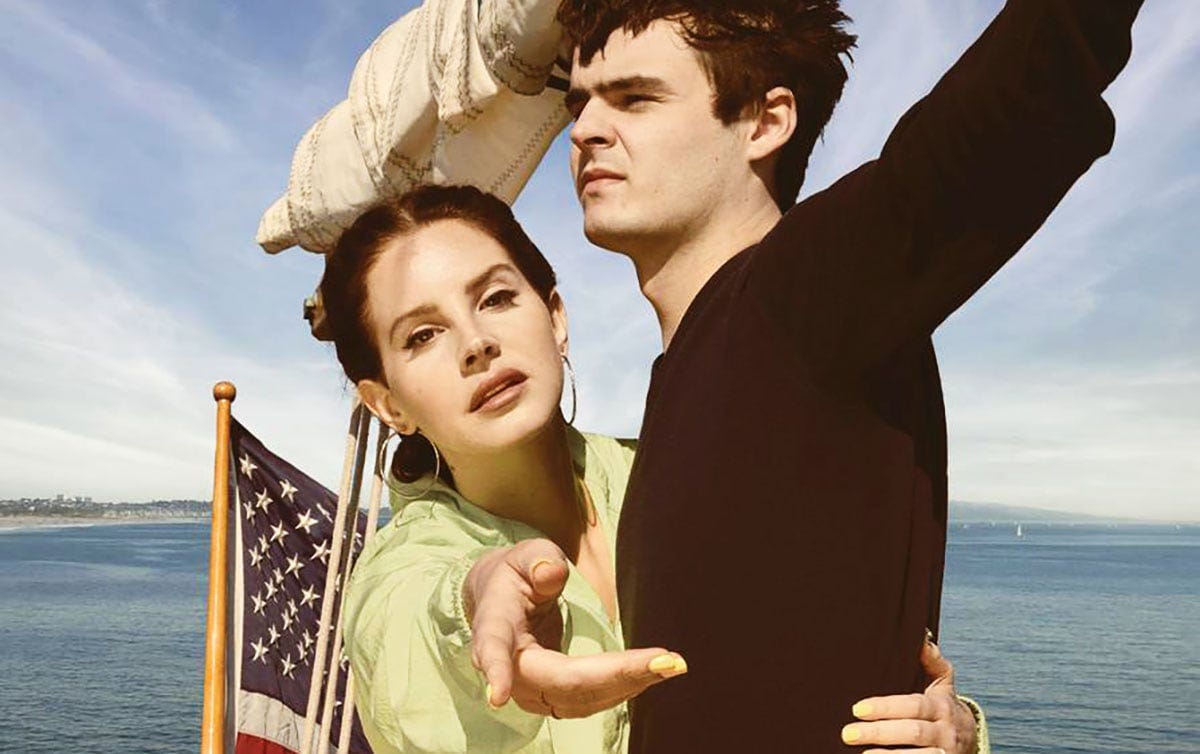I have, for the better part of the last seven years, been laboring under a misapprehension so obvious in hindsight that it now feels embarrassing to admit out loud. The error was not small, either, but one of those grand categorical mistakes that color (or stain) the way you process everything downstream from it.
It was this: I believed - falsely, lazily - that the creeping and increasing mid-tempo sameness of Taylor Swift’s discography from Reputation forward could be laid neatly at the feet of Jack Antonoff. I blamed him. I told anyone who would listen (and many who didn’t ask) that it was his production, his beige synth pads, his allegedly tasteful restraint, that had drained her of verve, sparkle, danger.
But then The Life of a Showgirl dropped this week and exposed the lie.
Because here, at last, we have an Antonoff-free zone: Max Martin and Shellback are back behind the wheel, the same men who turned “I Knew You Were Trouble” and “Shake It Off” into omnipresent cultural weather systems.
By any measure, this album should have been the steroid shot I kept saying I wanted from Swift’s music - the maximalist, stadium-sized, hi-def feast. Instead? Another procession of mid-tempo, rhythmically cautious songs that gesture vaguely toward ecstasy but never actually arrive in the same zip code. And this, dear reader, is when I had to confront a begrudging realization: it was never Jack. It was Taylor.
My Antonoff allergy didn’t sprout from Taylor Swift’s discography at all. It actually dates back to two albums from artists I love that were hugely disappointing: St. Vincent’s Masseducation and Lana Del Rey’s Norman Fucking Rockwell. Both are records where I felt the artists’ edges had been filed down into something more benign, the menace drained from Annie Clark’s machine-gun guitar and the raw camp siphoned out of Lana’s woozy theatrics. These were artists I had loved precisely because they went too far, and yet under Antonoff’s watch they seemed reined in, like circus animals made to trot neatly in circles instead of lunge at the crowd. That, I thought, was the Antonoff signature: restraint dressed up as taste.
But as I revisit those records with this suspicion in mind, the more I begin to think Antonoff wasn’t imposing anything so much as he was yielding. Which is to say: he may not be a producer in the traditional, domineering sense at all, but more like a conduit - someone who translates the artist’s internal weather into studio language with minimal interference. For better or worse.
And this reframing suddenly makes sense of why he works as a kind of foil for someone as ruthlessly self-determined as Swift. If you’re an artist who thrives on control, Antonoff doesn’t push back, doesn’t challenge, doesn’t try to bend the arc toward chaos or even interest. He facilitates, obediently, with the patience of someone whose superpower is simply letting you hear yourself exactly as you already are.
If I am honest with you, and I try to be, I have had doubts about my Antonoff distaste for a year now. The first tremor came with Sabrina Carpenter’s Short n’ Sweet, which his contributions, to my Antonoff-hostile ears, should have been yawn worthy if the man really were as toxically dull as I’d insisted. But his fingerprints there weren’t destructive at all; in fact, some of the most buoyant tracks - songs that somehow managed to be both sly and effervescent - were shaped by him.
Then came the true shaking of the paradigm: GNX, Kendrick Lamar’s latest, a record that is both brutal and transcendent, a thundering dispatch from the intersection of paranoia, genius, and history. When I saw Antonoff listed as executive producer, my first instinct was denial, a kind of poptimist bargaining. Surely he hadn’t really done anything. Surely Kendrick had kept him in a corner, a kind of symbolic name-drop to broaden the album’s press reach. And even if Antonoff had been allowed near the machinery, it didn’t matter, because Kendrick is a once-in-a-generation artist whose brilliance could metabolize any producer’s limitations.
But the more I listened, the more untenable my denial became. Antonoff wasn’t just present; he was functional. Some of the arrangements - sharp, lean, jagged in exactly the right places- bore traces of his taste, except here they weren’t beige at all, but sharpened into something necessary. It forced me to confront that maybe my Antonoff aversion wasn’t about him at all, but about what I didn’t understand about Taylor.
And here’s the part that makes me wince the hardest: there’s a baked-in misogyny to my earlier framework, the way I so easily believed that St. Vincent, Lana, and Taylor were somehow being shaped or dulled by a man, as though these women (artists of staggering self-direction) were passive vessels awaiting his beige brushstrokes.
I didn’t extend them the same agency I instinctively preserved for Kendrick, whose genius I insisted would inoculate him against any Antonoff-ian flattening. To my shame, I never trusted the thought Taylor might simply be choosing the very aesthetic I found so boring, that her instincts and desires were the total driving force all along. It took Showgirl to finally see that my narrative wasn’t just wrong, it was laced with the same old gendered assumptions I should’ve known much better than to recycle.
So I owe Taylor Swift an apology for assuming the conservative stance was accidental. That it was something done to her rather than something she did, deliberately, as the controlling hand on her entire career. But that is not at all, I owe her a second apology...




